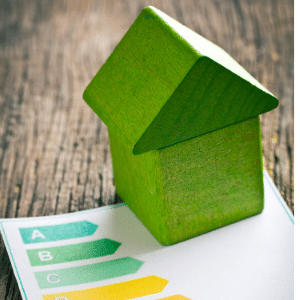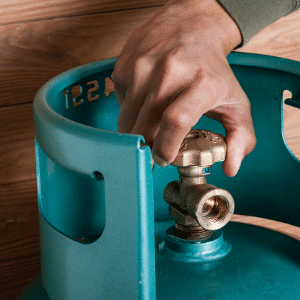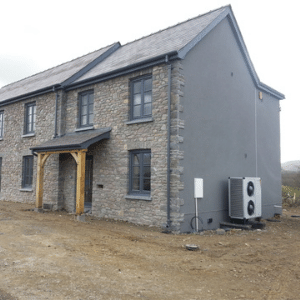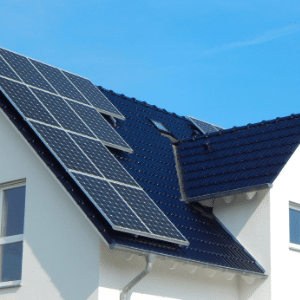Blog

The Most Effective Off Grid Home Heating Methods
Posted on 04 December 2020 in Blog
Going off-grid has been increasing in popularity in recent years, with a whole host of benefits driving the appeal.
Some of the major perks include the money-saving benefits of escaping utilities, energy security if the grid fails, as well as the well being offered by living in harmony with the natural environment.
Yet, with the majority of homes in the UK having poor thermal efficiency, ensuring your property is properly equipped for a greener type of heating is essential for comfort.
Even more important – what type of off-grid heating is the most effective? Which is cost-effective and can be relied upon throughout the seasons?
In this guide, we will explore some of the most viable off-grid heating methods and assess the pros and cons of each. With this newfound knowledge, you will be able to draw up an effective plan to ensure your off-grid home is efficiently heated throughout the year.
A Word on Efficiency First

Before thinking about the type of heating appliance to use, it is worth considering your homes energy and thermal efficiency.
Astonishingly a quarter of heat produced can be lost via a roof with no insulation, so slowing down the transfer of heat via walls, windows and the roof can go a long way to making sure the heat you produce stays within your home as long as possible.
In 2020, the UK Government announced the Green Homes Grant, a new scheme which aims to help support homeowners and landlords make their properties more energy-efficient.
This scheme is in line with the ambitious target to become carbon neutral by 2050 and is predicted to reduce carbon emissions by half a megaton, or to the equivalent of taking 270,000 cars off the road.
Most Efficient Off Grid Heating Systems
Once you take care of your property’s energy efficiency, the next step is to consider the type of appliance to install in your property.
A heating system can be segmented into three main components, the heat source, the distribution system, and how the heat is emitted.
In the UK, the most common heat sources or fuels are gas, oil, coal, biomass or solar. The most common mode of distribution is water via central heating systems, which are typically connected to a boiler that functions to heat and provide a supply of hot water.
Underfloor heating is becoming a popular alternative to “wet” central heating. Essentially these are large radiators installed below the floor, which work well in conjunction with heat pumps.
Off Grid Heating Systems
In the UK, around 15% of homes are not connected to the grid, meaning they can not utilise the most efficient and cheapest method of heating – primarily natural gas. For these individuals, other off-grid options are more economical and accessible.
In the past off-grid heating methods alone have rarely made financial sense, but certainly can in new properties, designed for off-grid living, or properties that have undergone considerable energy efficiency improvements.
These off-grid heating methods include oil, biomass, solar and heat pumps, so how do they compare?
Oil or LPG Heating

As highlighted by Heatable “Oil boilers are by far the most common off-grid heating system used in the UK, with 850,000 in the UK currently relying on the method as their primary heating source.”
Just like traditional gas boilers, they burn the oil to heat water for both heating and to provide an on-demand water supply to taps and other hot water outlets.
Unlike regular system, they do require a large oil storage tank on-site to feed the boiler with a consistent supply of fuel.
Pros
Just like natural gas boilers, oil provides a consistent and higher heat output, meaning that your home will become warm faster. They are also extremely efficient, with modern condensing oil boilers having 93% efficiency ratings.
The infrastructure for oil is also very well-established, meaning the oil is relatively easy to source and there are a considerable amount of companies offering delivery.
Oil boilers are relatively low maintenance, you will require an annual service, but other than that they require very little attention.
Cons
Oil is not a very environmentally friendly fuel, with the governments Clean Growth Strategy (CGS) is clear that the goal is to completely phase out high carbon fossil fuels over the next decade in off-grid homes.
Oil prices are quite volatile and change depending on a variety of factors and the costs associated with renting or buying an oil storage tank can be significant.
Since oil needs to be delivered quite regularly, there is the potential for delays and running out of fuel completely due to bad weather or other unforeseen circumstances.
Biomass Boilers

A biomass boiler relies on biomass, typically wood pellets as their fuel source and so is ideal for homes with no supply to the grid. Like traditional gas boilers, they can provide both hot water and heating.
Pros
Biomass boilers use wood pellets which are considered a renewable fuel source and so the operation is considered carbon neutral.
The heat produced from wood is reliable and able to produce consistent heating and hot water, it also has a high heat output and so can provide warmth in a relatively short time.
It is included in the government incentives (RHI) scheme and so you may be entitled to having some of the upfront costs subsidised.
If you're based in a rural location with accessible timber on your land, your fuel is effectively free.
Cons
The upfront costs for biomass boilers can be expensive since they are much larger and require a significant amount of room themselves, as well as the pellet storage.
They are relatively labour intensive, requiring regular cleaning and requiring the pellets to be transported from storage to the boiler. This being said, you can also install a silo, which will automatically feed the stored pellets directly into the boiler for you. Installing a silo also means you can order pellets in bulk and benefit from wholesale prices.
Although wood pellet prices fluctuate less than oil, they are still prone to changes. You should also check the availability of fuel in your region, to verify if it is a viable option before you pursue it as an option.
Heat Pumps

In comparison to traditional heating methods, heat pumps use very little energy to operate and are much more environmentally friendly. For this reason, they have been highlighted in the Government’s “Future Home Standards” documentation as a potential prime candidate to replace gas boilers.
There are two main types of heat pumps:
An air-source heat pump utilises a refrigerant and the concept of vapour compression to absorb heat from the external environment. They can be used to provide both heating and produce hot water.
Ground source heat pumps work on the same principle as ASHPs, except that they harvest the heat from the ground rather than the air. They require a more substantial installation, such as the digging of boreholes and trenches.
Both types of heat pumps require electricity to run but can be paired with solar panels to reduce running costs.
Pros
Both types of heat pumps are extremely efficient and have low running costs in comparison to traditional fossil fuel systems. They have an efficiency rating as high as 300% since they do not produce their heat – they simply transfer it from the environment.
They require little maintenance and do not need servicing as often as traditional heating systems. They also offer quiet operation and there is no risk of dangerous carbon monoxide leaks.
Cons
Although heat pumps offer the lowest running costs of almost any other type of heating, the upfront installation costs are the highest, especially for ground source heat pumps.
Both types also need a considerable amount of space to install, particularly ground source, that requires land to be trenched. ASHP’s require a clear external wall, as well as space inside to house the heat pump install.
Air source heat pumps are not the most reliable, since the air temperature can vary greatly, their efficiency can also fluctuate. Although, they can continue to operate at temperatures as low as -20°C.
Solar Heating

Solar is a great way to harness the power of the sun for free and is particularly effective for providing hot water. When it comes to space heating, solar panels are often used to supplement another heat source as the energy they collect through the day can differ. Overall, the installation of solar panels can help to save you money on your energy bills.
Pros
A great way to harness the sun during daylight hours, helping to reduce heating costs and your carbon footprint.
Solar panels also benefit from the government RHI scheme and whereas annual payments for biomass boilers and heat pumps have been capped, there is no upper limit for solar thermal.
Cons
If you do not use much electricity during the day, then solar is likely not going to be worth it, since at present solar electric storage solutions are expensive.
More importantly, however, is the fact that solar will rarely supply enough energy to provide a consistent and reliable supply of hot water and heating. For this reason, it is currently only used to supplement a primary heat source.
Another key consideration is the cost of integrating solar with your current systems which can take time to install.
Off Grid Heating Conclusion
If you live off the grid and want a reliable, greener, and efficient heating source, you have quite a few options to explore. It is important to consider your heating and hot water demands, as well as your budget for installation.
There is no doubt that heat pumps are by far the most efficient, with ratings of 300% and above, but the upfront costs are substantial. Paired with solar, this system is perhaps one of the greenest, cleanest, and low-cost heating systems to run year-round.
However, it is worth noting that the Renewable Heat Incentive (RHI) scheme operated by the government is available for those commercial and residential property owners who want to adopt a renewable heating system.
About the Author
Jude McLean is a qualified plumber with over 10 years experience in the heating industry. Jude has a keen interest in renewables and the future of heating technology. You can view more of his articles at www.boilerbrain.co.uk.
 Facebook
Facebook LinkedIn
LinkedIn Twitter
Twitter














